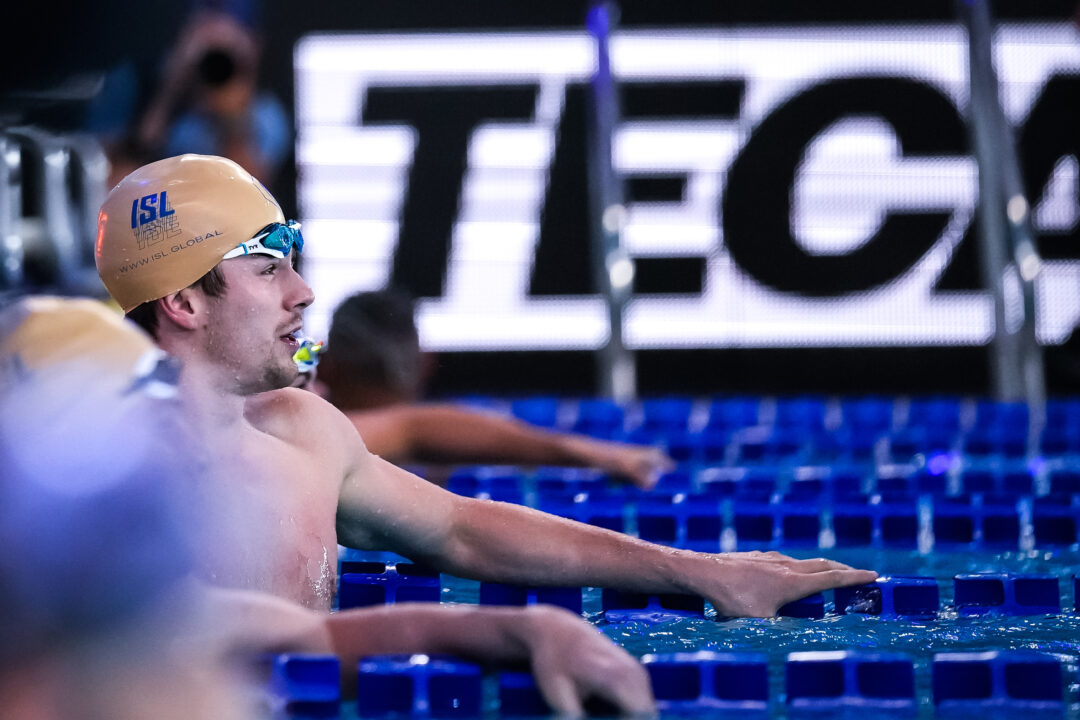Learning from your swim workouts—good or bad—is jet fuel for faster swimming. Here’s how to do it.
How many meters are you swimming this week?
If you’re like most (or all) competitive swimmers, the answer goes something like this: Many, many meters and yards.
From warm-up, pre-sets, Godfather trilogy-level main sets to warming down, the volume stacks up fast.
But how many of those Y/M are you actively learning from?
Are you going through the motions, logging mindless yardage (#garbageyardage), or are you turning every practice into a learning opportunity?
Here’s the truth: it’s not just the mileage you put on the odometer, or the tint or that sweet vintage tape deck.
It’s how much you are learning each time you hit the pool.
And that’s where this simple little feedback loop can help propel you towards more improvement in the pool.
The Elite Swimmer’s Feedback Loop
This wee little feedback loop takes all of two minutes to go through… okay, maybe like 5-10 minutes… but it will pay massive dividends.
Here goes:
What’s the goal?
Before you dive into the water, let’s get clearer than a freshly chlorinated hot tub about what we are going to achieve today.
Is it…
- Hitting a target race pace?
- Giving a specific effort level during the main set?
- Mastering an “impossible” interval that has haunted your dreams for weeks?
- Clocking some near-PBs via off-the-blocks race simulations?
Going into practice without a goal means you come out of the workout without a result.
By defining a purpose/goal, you sharpen your focus and set the stage for the rest of the feedback loop.
How did it go?
Alright, the workout is over. You’ve peeled yourself off the pool deck, caught your breath, showered off, and collected your life and dignity to the point you can reflect honestly.
How did the workout go?
And let’s be honest. Not the vague “honest” stuff like, “Pew, stinky.”
Instead, look at:
- How fast did you swim?
- How did your mindset hold up?
- If you fell off pace, when and why?
- Where did you shine?
- Where did things fall apart?
Pick the metric that lines up with your goal/purpose and assess how it went.
This step isn’t about labeling or judgment, even though that tends to be our first instinct. It’s about awareness.
Because we are about to mine some chlorinated gold.
What did I learn?
Get your shovel and best coal miner outfit cause we’re prospecting for some gold in these here hills!
Whether swim practice was a stage-five disaster or a win, there’s always something to be learned.
- If you crushed the main set—why? Was it your pacing? The warm-up? The self-talk you used when things got hard?
- If you struggled—again, why? Did you fall apart mentally? Stroke was off? Not fueled up properly?
The key is to ignore the emotional judgments that will fog up your analytical goggles.
Look at the session like an outsider would—objectively and with curiosity.
What will I do next time?
And now, the launch pad.
You’ve done the thing. Learned from the thing. Now it’s time to put that knowledge and accelerate into improvement.
- What’s the adjustment going into tomorrow?
- The things we did well—how do we build on them?
- The things we didn’t do well—how do we learn and build on them?
This is where we close the gap between yesterday’s workout and tomorrow’s improvement.
- “I try to make the good days great and take something positive from the days I’m not feeling good—work on technique or something like that.” – Katie Ledecky
Wrapping Things Up
This feedback loop takes around… two minutes. Maybe five.
Less if you are wearing a tech suit and a racing cap. Ha.
Done objectively—it’s best done after you’ve “cooled down” emotionally from the workout, good or bad—it will yield an absolute treasure chest of actionable intel.
Because fast swimmers learn faster.
What works. What doesn’t. And they apply those lessons ASAP to accelerate improvement.
Replicate this feedback loop enough times over the course of a season and you will give yourself countless opportunities to get better.
Happy swimming!
ABOUT OLIVIER POIRIER-LEROY
Olivier Poirier-Leroy is a former national-level swimmer, author, swim coach, and certified personal trainer. He’s the author of YourSwimBook, a ten-month logbook for competitive swimmers.
 He’s also the author of the best-selling mental training workbook for competitive swimmers, Conquer the Pool: The Swimmer’s Ultimate Guide to a High-Performance Mindset.
He’s also the author of the best-selling mental training workbook for competitive swimmers, Conquer the Pool: The Swimmer’s Ultimate Guide to a High-Performance Mindset.
It combines sport psychology research, worksheets, anecdotes, and examples of Olympians past and present to give swimmers everything they need to conquer the mental side of the sport.
Ready to take your mindset to the next level in the pool?
👉👉 Click here to learn more about Conquer the Pool.

It’s all about the mileage you put on the odometer. Don’t be fooled by claims of introspection. As each lap passes, you learn how to make it better. Minute by minute you balance distraction with your daily progress. Your setbacks come, but slowly you gain some new growth and direction takes the upper hand and begins to add some inertia. And old problems are abandoned & new problems will appear. This is a growth in swimming. 4-27-25